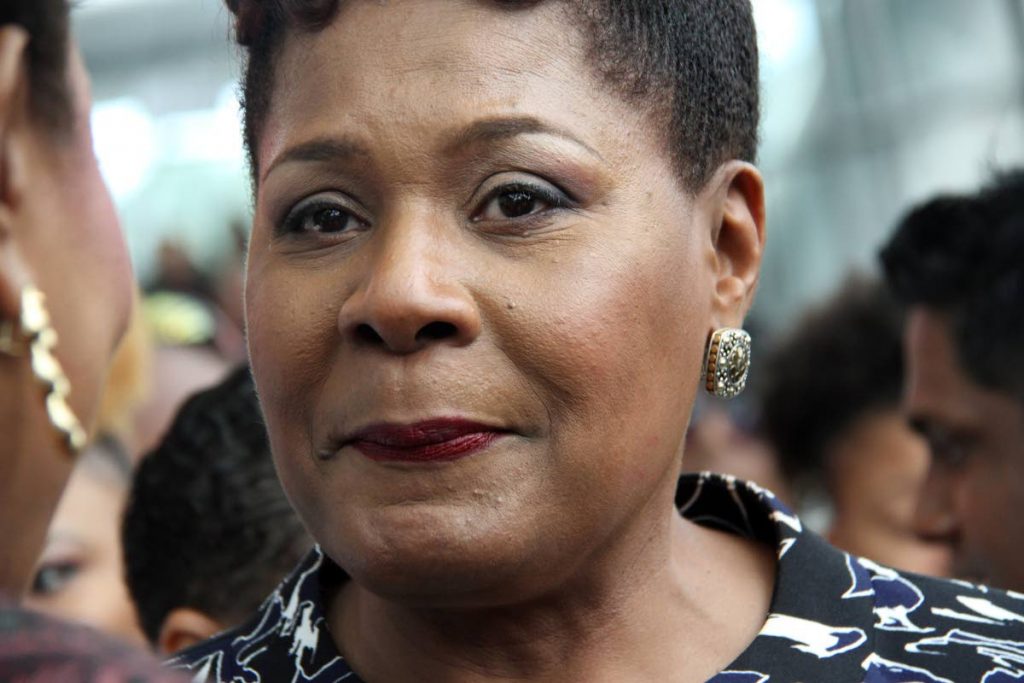A presidential call to arms

MARINA SALANDY-BROWN
The inauguration of Trinidad and Tobago’s first female president Justice Paula-Mae Weekes has given many people a sense of hope that things might, just might, be able to improve for all of us and for this well-endowed but beleaguered country of ours.
The general bonhomie derived from President Weekes’s unopposed election by the constantly warring, litigious, governing parties was a start, and then Her Excellency’s extremely well judged, beguilingly simple, self-deprecating and witty speech intensified the feeling of reassurance. Finding a figure who could be a source of unification in these troubled times was an achievement for which we are all grateful.
For her, having to embody the nation’s hope must be a huge challenge and she did well to delineate the backdrop of her presidency, calling it out for what it is: she, like all citizens, has “endured the maddening inefficiencies of the public sector, I too drive with my windows up and doors locked even in broad daylight, I have lost two cars to thieves and waited hours for medical attention…I know what the murder count is and how many of the victims have been women and children slaughtered in acts of domestic violence, …volatile tensions,…people affected by mental illness, addiction and homelessness,… and if I needed to get to Tobago in a hurry I could not be certain if or when I would arrive.”
Our new President knows we are “going through dark times,” but in the first of surprisingly many entirely apt literary references, she quoted CS Lewis, author of the bestselling series of fantasy novels Chronicles of Narnia, the children’s version of the Christian myth that has captured the imagination of many millions of young minds since the 1950s, to help reset our balance and speak to what many of us dare to feel, namely that, “This is a good world gone wrong but it still retains the memory of what ought to have been.” I have tended recently, despite my feelings, however, to think that we have reached the tipping point into complete disaster but I try to prove myself wrong. Like her, I tell myself that “it is always darker before the dawn” and strain to retain the optimistic Pollyanna in me [another famous children’s fictional character] and will happily join her “totally possible” mission and continue to try to defy the darkness and pull back from the brink.
President Weekes talked in yet another literary reference of rubbing her magic lamp to release our collective genie to help in the daunting task of making each individual accept responsibility for the personal change that is necessary to go forward. That very Anglican call to self-reliance, it suddenly dawned on me, was the explanation of one of the fissures in our approach to life that I had only intuited. Religious affiliations and education shape us, that is obvious, but I had never spent any time reasoning what might be the difference between being from this or that school. The ceaseless identifying of oneself as one or the other can be irritating and the President’s speech, although never mentioning her school or Christianity, was imbued with Hilarian values that are Anglican.
I am frequently mistaken for “a Bishop’s girl.” Now I realise that, despite being educated as a Catholic, growing up in England I had unknowingly taken on some Enlightenment values associated with Anglicanism, ie, individual human effort and man’s [woman’s] will, with emphasis on practical activity and usefulness in the physical sphere, playing down metaphysics, promoting action over contemplation and pragmatism over dogmatism.
I understood finally that the “Bishop’s Girl” syndrome is not just about pride in a school’s traditions, and not about privilege or superiority but a fundamental confidence in a world view that is based on belief in the human being and individual ability. It may appear utilitarian but we could do much worse than follow President’s Weekes call to buck up, stop complaining and find the courage to help her with the important job in hand.

Comments
"A presidential call to arms"